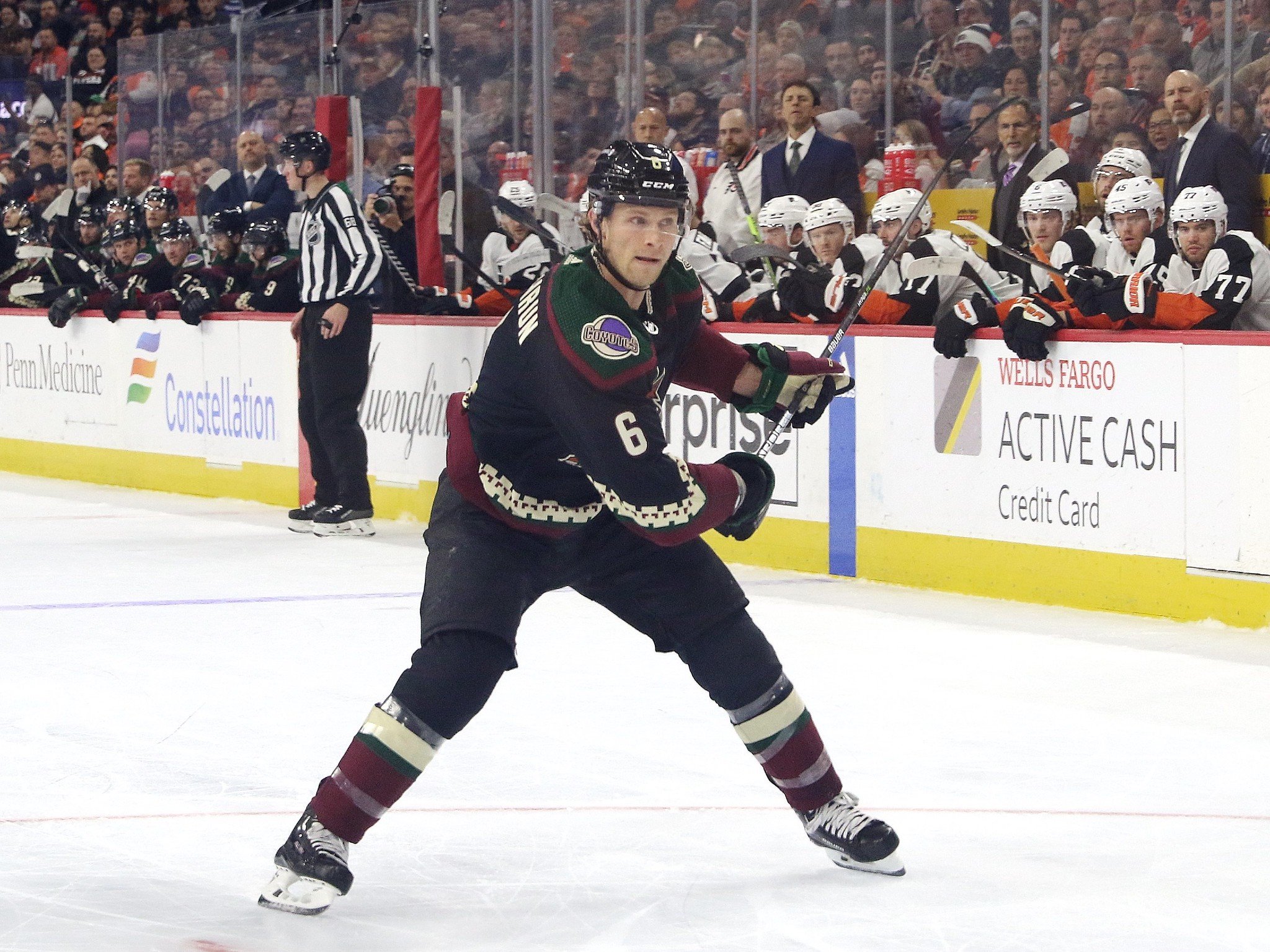In the NHL and as the NHL Trade Deadline rolls around, there are usually one or two teams that find themselves in a position where they become a third-party trade broker. Essentially, this is where a team that has salary cap room works with two other teams by helping facilitate a trade that wouldn’t otherwise work based on cap restrictions. Typically, the third team takes salary in exchange for a draft pick or prospect. Thus far, CapFriendly notes there have been six trades brokered by third parties, and those teams have received anywhere from a fourth to sixth-round pick.
The Arizona Coyotes are a team that will find themselves as a third-party broker this season. The Edmonton Oilers may likely be a team that needs a third-party broker. It makes sense that these two teams work together.
Why the Coyotes and Oilers?
As Frank Seravalli points out in a recent article for Daily Faceoff, “We know the ‘Yotes are eager to acquire as many draft picks as possible. If they trade Jakob Chychrun, they might be flirting with the salary cap floor, so getting involved in the retention game makes sense, plus they can take on bad contracts.” There are two ways the Oilers could get involved with the team based on these comments.

First, Edmonton might have an interest in Chychrun. He’s a left-shot defenseman who is being labeled one of the big trade deadline pieces of the season. He’s having an incredible season since returning from injury and the interest in the blueliner around the NHL is only growing as the Oilers’ defensive struggles continue.
The price the Coyotes are asking for is likely too rich for the Oilers, but if the idea of two firsts (or something equivalent) becomes doable for Edmonton, there might be a fit here. The Oilers’ first this season, plus Philip Broberg and a prospect might get it done. And, based on Seravalli’s comments about the Coyotes then being near the cap floor, Edmonton could likely move another piece with some salary back in the deal as well.
Second, the Oilers might not look at Chychrun, but they might take advantage of the fact Arizona needs to add salary once Chychrun is moved to another team. For example, if a team like Seattle grabbed Chychrun, Arizona would need to add some salary. The Oilers could then make a deal with another team, using the Coyotes as a third-party broker.
What Might an Oilers/Coyotes Third-Patry Trade Look Like?
Just to paint a picture of one possible scenario, let’s say the Oilers targeted Radko Gudas from the Florida Panthers. Edmonton would need some help fitting in Gudas’ $2.5 million salary cap hit. It’s not a lot if these three GMs can get together and work out a deal that works for all parties involved.
The deal would look something like this:
- Trade 1: Florida trades Radkos Gudas to Arizona for a fourth-round pick (Florida retains 50% of Gudas’ salary $1.25 million)
- Trade 2: Radko Gudas flipped from Arizona to Edmonton for a third-round pick. (Arizona Retains 50% of Gudas’ remaining salary, totaling $750K)
- Trade 3: Florida trades Sam Bennett or Sam Reinhart in a separate deal ensuring no cap issues, even if they make other deadline moves.

In the end, the Oilers give up a third-round pick, Arizona jumps up a round with their pick (in exchange for $750K retained) and the Oilers get Gudas as a rental for $750K to finish out the season.
Of course, Gudas isn’t the only option here, especially when you factor in the fact the Oilers might be prioritizing a left-shot defenseman over a right-shot d-man. That said, you get the idea. The Coyotes can afford to do this to jump up in the draft, the Oilers don’t have to give up an arm and a leg for a useful player at league minimum (pro-rated) and Florida (who is having a dreadful season comparatively) dumps someone who may be on the way out anyways.
You may also like:
- NHL Trade Grades: Oilers Boost Defense With Connor Murphy Addition
- Oilers Acquire Connor Murphy From Blackhawks for 2nd Round Pick
- Oilers’ Chances of Winning the Cup Being Held Back by Nurse & His Contract
- Oilers Have Rough Road Ahead With Tough Schedule in March
- What Happened to the Oilers’ Magnus Paajarvi?
The question becomes the demand for some of these rentals that might be moved at the deadline. If too many teams are finding it hard to make trades because of cap issues, the demand might not be as high and the prices not as steep. Ken Holland is going to need to get creative.
